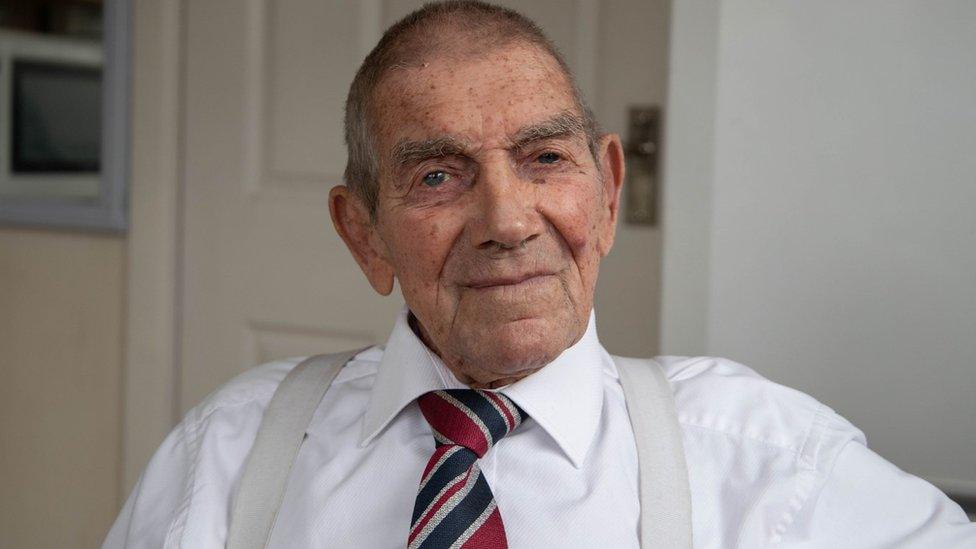Pegasus Bridge Café family to toast D-Day liberators
- Published
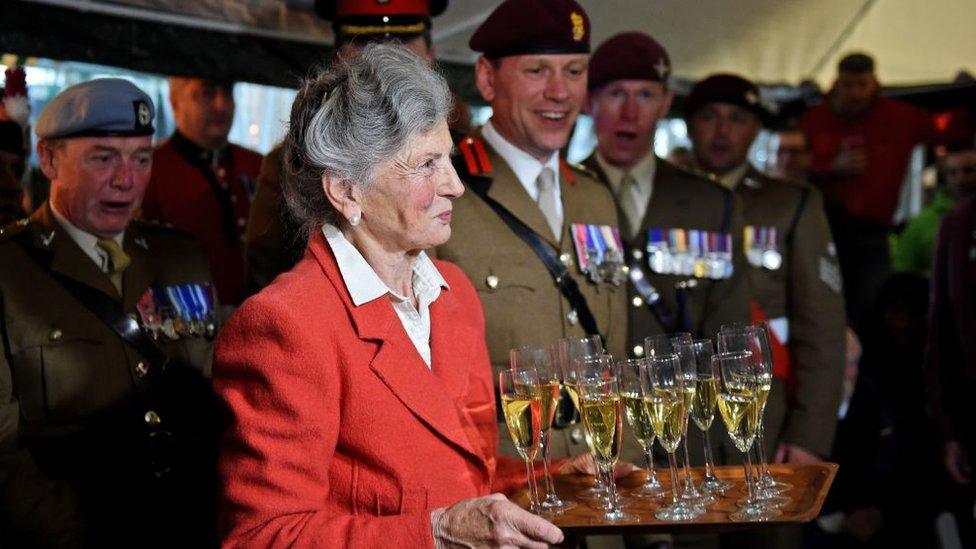
Champagne has been offered to visiting veterans at the Pegasus Bridge Café, every 5 June
Arlette Gondree was four years old when British troops entered her family's cafe in Bénouville, Normandy in June 1944, making them the first family to be liberated from German control.
When the 80th anniversary of that moment arrives on 5 June at 23:16 French time, she will offer champagne to the veterans present, as a mark of thanks, just as her family has done every year since.
She remembers her mother and father spying on German soldiers who drank at the cafe and, from the Warwickshire home where she now spends the winter, has been reflecting on the part her parents played in the success of the D-Day campaign.
Madame Arlette, as she is known by the veterans, recalls with great clarity the moment British soldiers arrived at the cafe as she cowered with her mother and sister in the basement.
The family had been sent down there after hearing a tremendous crash, marking the start of Allied action.
Her father had crept upstairs "and could see something was not right", she said.
"We were shivering, we were very cold and then the café shutter was being forced open, the windows panes were being broken and then footsteps above our heads.
"We thought the Germans were coming to get us."
But two blackened faces appeared in the kitchen and one said to her father: "Monsieur, we have arrived, we are British".
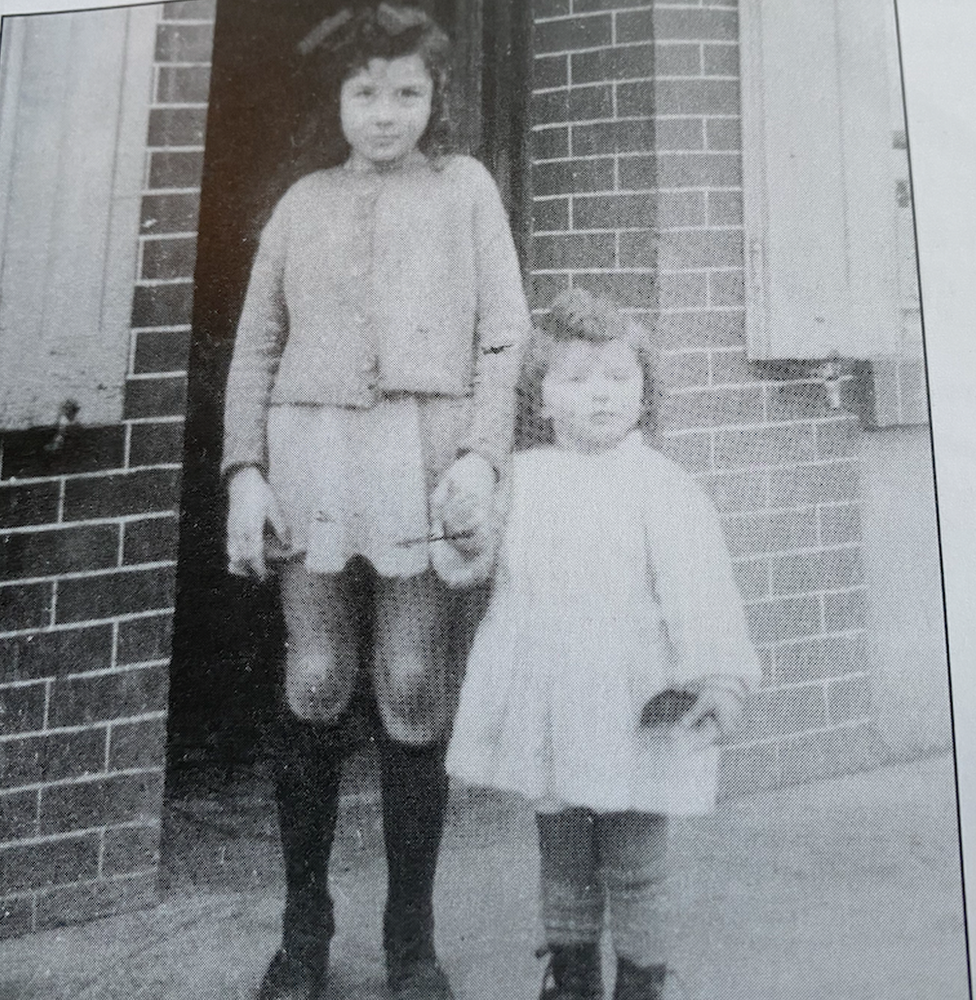
Arlette Gondree remembers hiding in the cafe's cellar with sister Georgette as British troops arrived
The Normandy Landings marked the beginning of the liberation of occupied Western Europe.
More than 150,000 soldiers from the UK, US, Canada and France were involved in what was the largest land, air and naval operation in history.
Café Gondree, owned by her parents Georges and Thérèse, sat by the foot of the bridge over the Caen Canal, making it of vital importance to British intelligence, Madame Arlette explained.
The British knew any invasion would likely fail if it did not secure the bridge, and one a short distance away, across the River Orne.
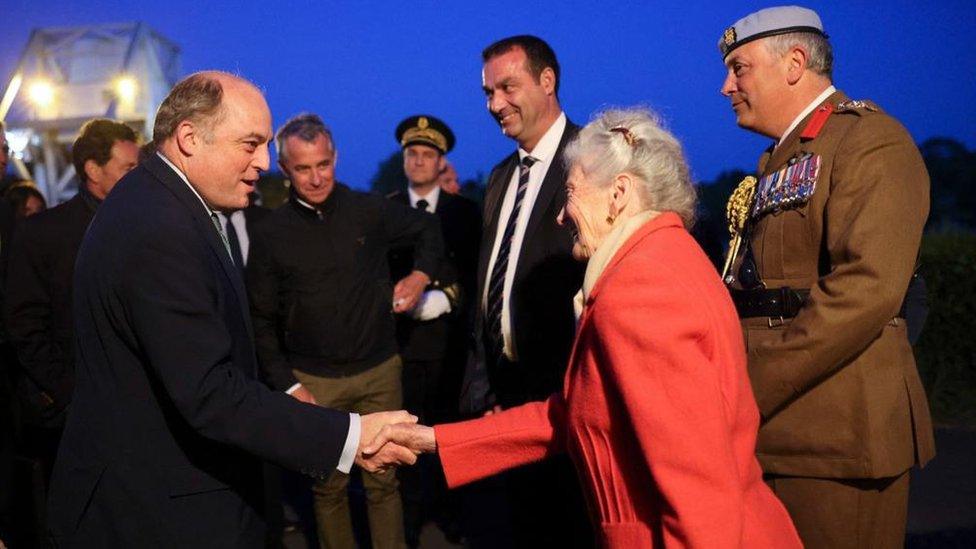
Defence secretary Ben Wallace attended the celebration in 2022
As has been immortalised in the film The Longest Day and in many history books, British airborne troops crash-landed their gliders in a nearby field and made the bridge the first tactical conquest of D-Day.
Madame Arlette and her sister, 10-year-old Georgette, were "just two little girls, hiding behind the barrels in that cellar," she said.
"And when the soldiers came down, they did something that we had not had for a long time and that was to give us some chocolate and some biscuits.
"One of them grabbed me and took me in his arms. Mummy kissed them, and from that moment on we were with them."
The soldiers were part of the 7th Parachute Battalion whose objective was to take the west bank of the canal.
Life under German occupation had been difficult, Madame Arlette said, but it was vital the family remained at the cafe, which was open to locals as well as the occupying troops.
"Little did the Germans know that my parents had two languages of importance to the British Army," she explained.
Both were members of the French Resistance.
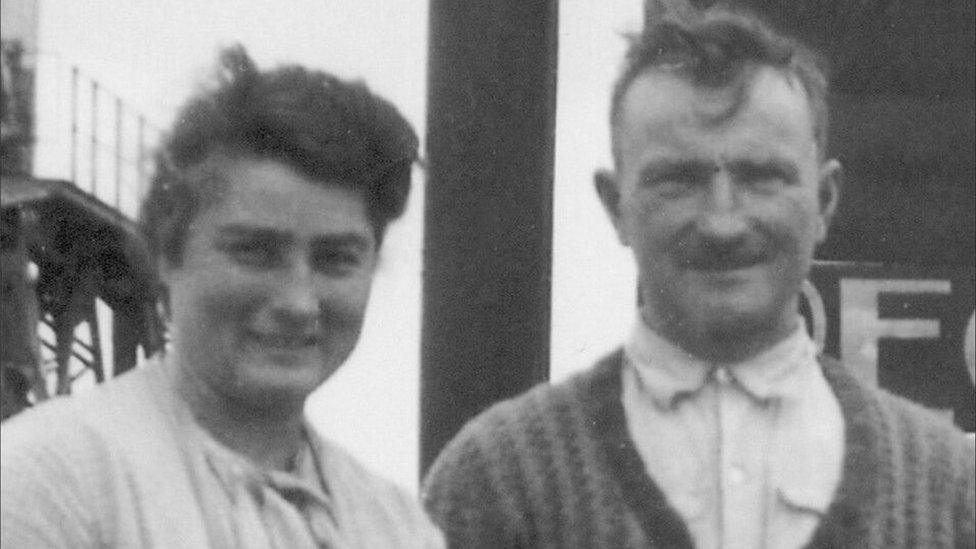
Thérèse and Georges Gondree passed information gathered at the cafe to the French Resistance and British agents
Thérèse could speak the Alsatian dialect of German, and what she heard in the cafe, her husband - who spoke English - would pass on to agents.
"Twice my mother risked her life," she said.
"The first time they came for interrogation in the village. Fortunately, she was released and she was unharmed, but she was very traumatised.
"The second time was towards the end when the [German soldiers] were getting more impatient and one of them was rude to mummy and she said to him, 'I'm going to report you to your commander'.
"He got up and got hold of her by the throat and fortunately daddy arrived in time and separated them."
After liberation, the cafe was transformed into a field hospital for the wounded and dying.
"Mummy was a trained nurse when she married my father," Madame Arlette explained. "So, naturally, she recovered this skill".
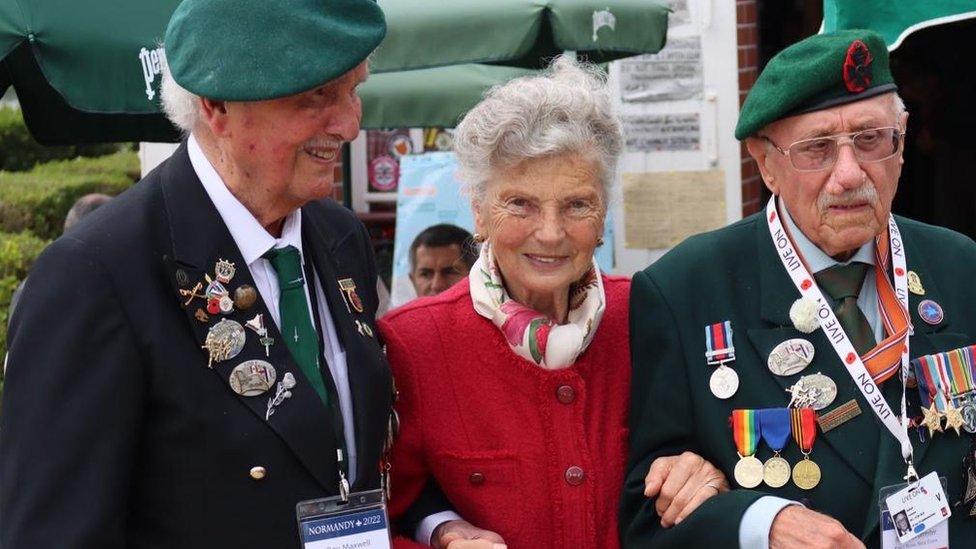
Veterans will gather to mark the 80th anniversary in June
Madame Arlette likes to think of herself as a pillar linking the British and the French people, after travelling to Warwickshire in 1959 and marrying Theodore Pritchett, the son of a former Lord Mayor of Birmingham.
She was patron of Birmingham Normandy Veterans Association for more than 20 years and is still involved with the Army Air Corps.
She also works closely with the London-based Taxi Charity for Military Veterans which for many years has been taking veterans to Normandy to the D-Day commemorations.
The Pegasus Bridge Café, renamed after the winged emblem of the British 6th Airborne Division, is opened to visitors each summer from April to October.
Over the years, thousands of veterans have called at the cafe, which has become part of Britain's military history.
Shortly after liberation, Georges produced some of the champagne he had hidden in his garden.
"He had buried the champagne, the liquor and the wine and covered it with corrugated iron," Madame Arlette said. "And on top grew vegetables and fortunately the Germans never found daddy's hoard".

Arlette Gondree opens the Pegasus Bridge Café to visitors each April to October
Visiting veterans have been offered champagne at the cafe every year since.
"Whenever they returned we gave them affection, we cuddled them, we've fed them, we put them up," Madame Arlette said.
"Sadly, over the years, they are gradually leaving us but one must keep the memories alive. I feel very proud to be part of the history.
"With the approach of the 80th anniversary, with the aging veterans, some of them are still with us, and they are part of me, part of what we shared in '44 and what I've shared over the years with them."

Follow BBC West Midlands on Facebook, external, X, external and Instagram, external. Send your story ideas to: newsonline.westmidlands@bbc.co.uk, external
- Published7 August 2023
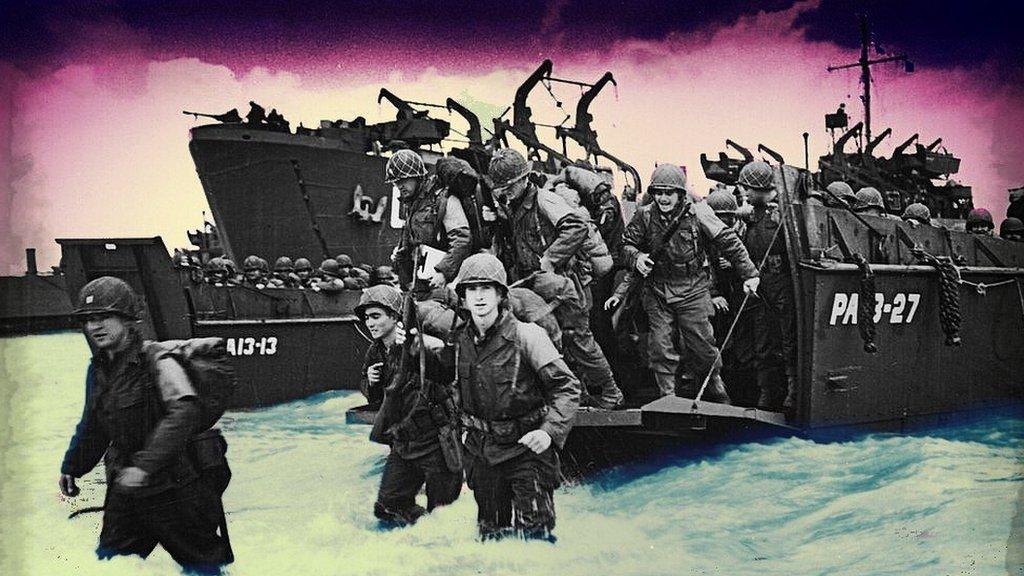
- Published6 November 2023
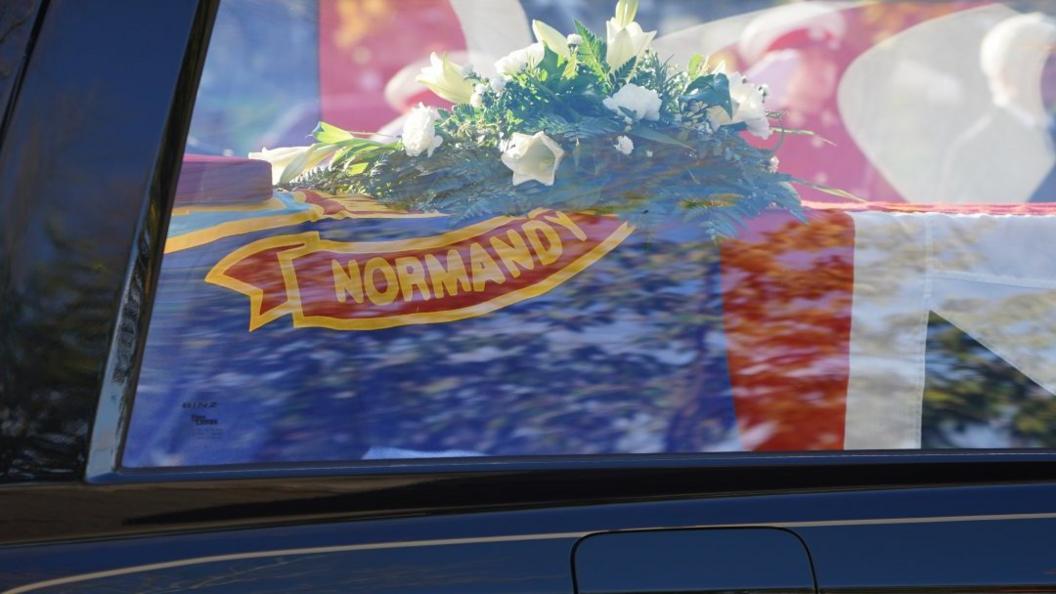
- Published19 May 2023
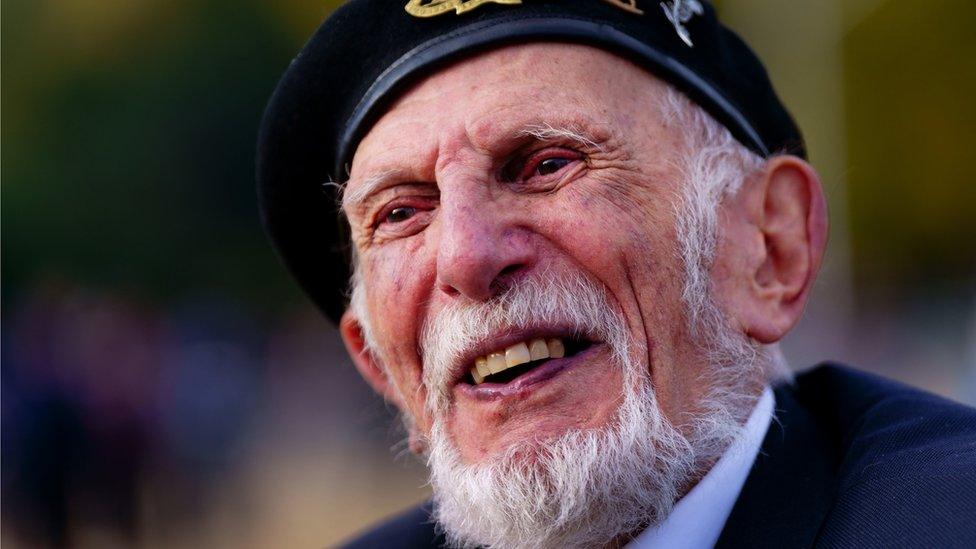
- Published11 May 2023
